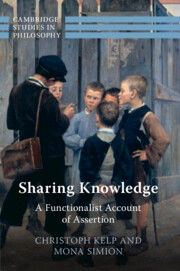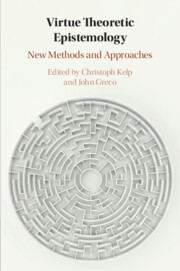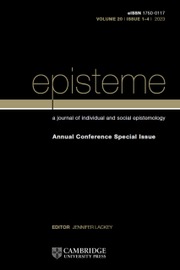Sharing Knowledge
Assertion is the central vehicle for the sharing of knowledge. Whether knowledge is shared successfully often depends on the quality of assertions: good assertions lead to successful knowledge sharing, while bad ones don't. In Sharing Knowledge, Christoph Kelp and Mona Simion investigate the relation between knowledge sharing and assertion, and develop an account of what it is to assert well. More specifically, they argue that the function of assertion is to share knowledge with others. It is this function that supports a central norm of assertion according to which a good assertion is one that has the disposition to generate knowledge in others. The book uses this functionalist approach to motivate further norms of assertion on both the speaker and the hearer side and investigates ramifications of this view for other questions about assertion.
- Develops a novel functionalist account of assertion
- Explores the relation between assertion and knowledge sharing
- Argues that the normativity of assertion can be explained in terms of assertion's relation to knowledge sharing
Product details
November 2021Adobe eBook Reader
9781009041096
0 pages
This ISBN is for an eBook version which is distributed on our behalf by a third party.
Table of Contents
- Introduction
- Part I. KRA: The Knowledge Rule of Assertion:
- 1. The case for the KRA
- 2. Problems for KRA
- 3. KRA and sufficiency
- Part II. FFAA: A function first account of assertion:
- 4. FFAA
- 5. FFAA and KRA
- 6. FFAA and the duty to believe
- Part III. Knowledge and Language:
- 7. KRA and constitutivity
- 8. KRA and epistemic contextualism
- Appendix A. The value of knowledge
- Appendix B. JRA and knowledge first justification
- Appendix C. Constitutivity in general
- Bibliography.





